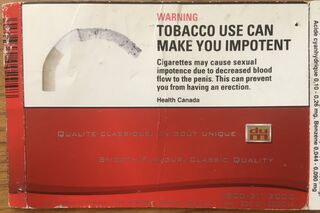
For several years, a persistent myth has flooded the Internet and promulgated through pop psychology. The myth suggests that watching Internet pornography leads to men experiencing difficulties getting, and maintaining, erections, particularly when they try to have “real” sex. The claims also suggest that difficulty getting aroused leads to them watching more and more “extreme” pornography. Sex therapists and researchers like myself have been raising concerns about this myth for many years, for a variety of reasons:
For all these reasons, and more, I’ve been arguing for years that blaming the Internet for erection problems is not only foolish but potentially harmful. But, the anecdotes persist in proliferating. In fact, it appears that the activism behind these views may actually create more such anecdotes, through social psychology effects. Finally, however, a study has been conducted which put these anecdotes to a real scientific, measurable test. If we believe that subjective, anecdotal reports of erectile difficulties might be unreliable, what’s the answer? Well, we need some intrepid researchers to actually get out there, show some porn to men, and actually measure their erections. And that’s just what these researchers did. article continues after advertisement
In this study, conducted by the eminent Erick Janssen, Senior Research Fellow of The Kinsey Institute, and Professor in the Department of Neuroscienciences at the University of Leuven, 211 men were studied. For a laboratory study with precision instrumentation and measures, this is a very large and robust sample. These were men who have sex with men, a group whose concerns about hypersexuality and risky sexual behaviors have been heavily studied since the days of the HIV crisis. (Please note: The penises of gay men do not work any differently than the penises of straight men.) The researchers used diagnostic expert clinical interviews and questionnaires to distinguish men who fit the criteria for compulsive, or problematic sexuality, and 81 of the 211 men did. Then, the researchers showed these men a variety of video images, designed to elicit positive and negative emotions, as well as pornographic films to elicit sexual arousal. While watching these films, the men’s penises were monitored using devices called strain gauges, which objectively measure the erection.

Researchers found that being classified as hypersexual or not did predict differences in erectile response. So, men with symptoms of problems due to sexual behaviors appear to have no greater risk for erectile difficulties: Problems with arousal or erection did not appear to contribute to their problematic sexual behaviors). But further, the researchers collected information during interviews about the men’s use of pornography. Analyses found there was absolutely no statistical relationship between their use of pornography and their physiological response to pornography, measured in the laboratory. Again, to be clear: In this research, a history of watching pornography did not affect the ability of men to achieve an erection.
In this study, only one factor predicted men’s erectile responses – their levels of “sexual excitation.” This is a construct that measures how much a person tends to get quickly and easily turned on, and how much they work to suppress sexual arousal. Turns out (no surprise), men who report that they get easily sexually excited and who don’t exert much effort to inhibit their sexual arousal get more physically aroused, and sexual inhibitions did not alter their sexual arousal. This finding replicates a 2015 study, which also showed that sexual responsiveness predicted identification as hypersexual, and consumption of pornography. This study also examined whether some men got more aroused, when they experienced negative mood states, as predicted by the theory, known as the dual-control model. This theory has suggested that some people experience greater sexual arousal when depressed or stressed and that this predicts more problematic sex. In this study, however, no such effect was found: There were no measurable differences in regards to the different mood states.
These findings suggest that rather than getting distracted by pornography use, we can best support men struggling with erections by attending to personal motivational and behavioral factors. These men are, sadly, in a lot of pain, experiencing tremendous fear and shame, feeling that their difficulties with erection mean something about them and their masculinity. They are desperate for answers, and something to point at, something that they can try to control, to make this problem go away. They deserve help. But unfortunately, the claim that watching Internet pornography caused their problem appears to be debunked. Blaming porn doesn't help these men. Instead, addressing elements of anxiety, attitudes towards relationships, and particularly examining how these men feel about their sexuality and sexual arousal should be the focus of supportive treatment, as well as helping them realize that their very fear, shame, and anxiety are causing the thing they are so ashamed and afraid of. Instead of talking about porn, let's start talking about the person.
Originally published on Psychology Today.
Cover photo by Pexels